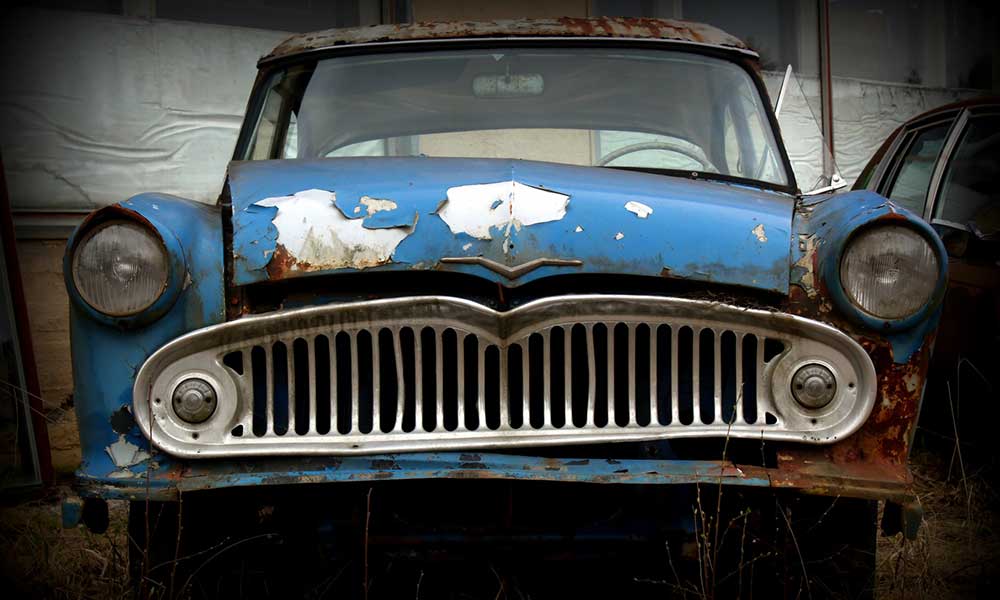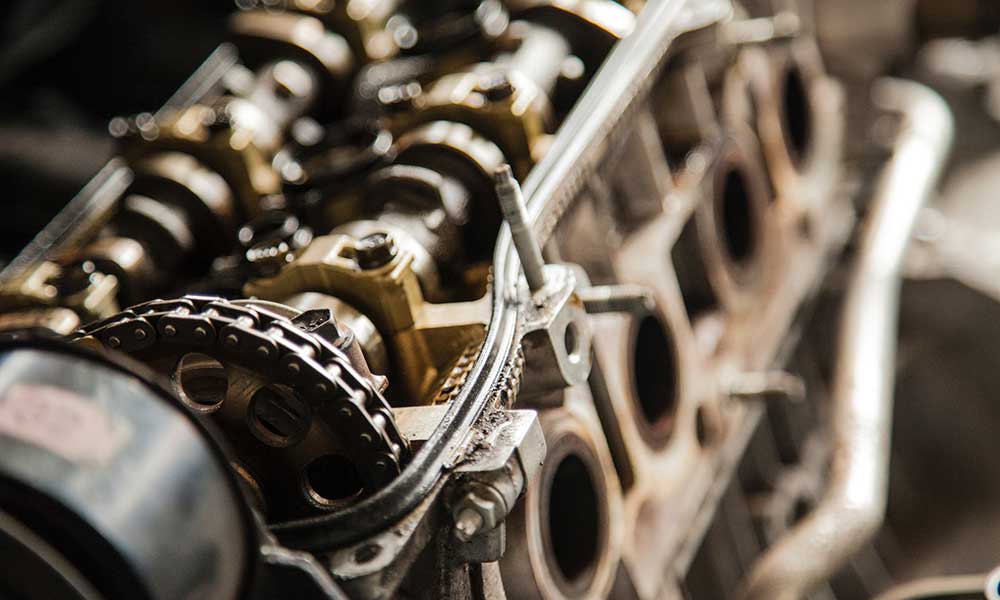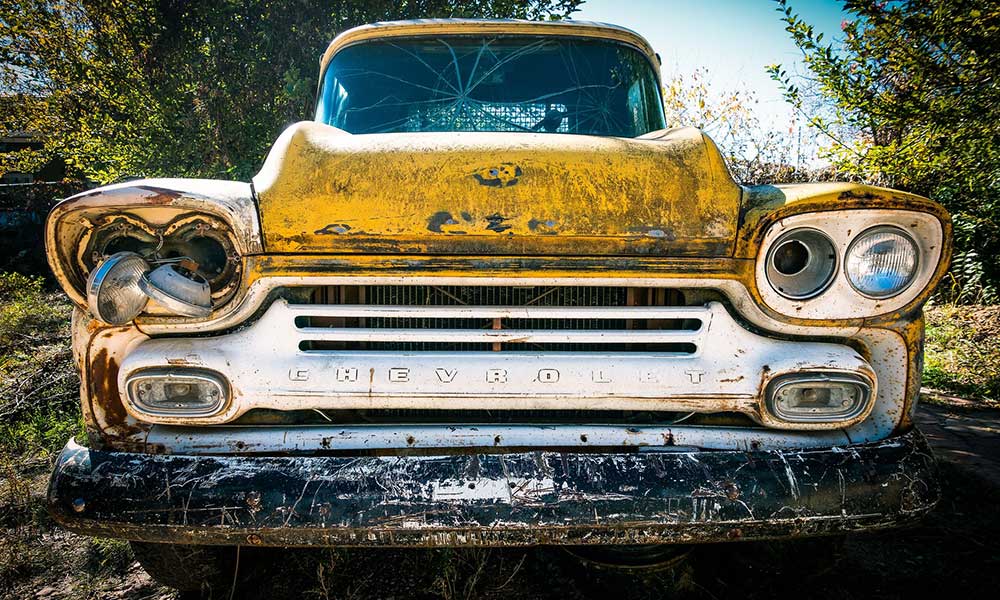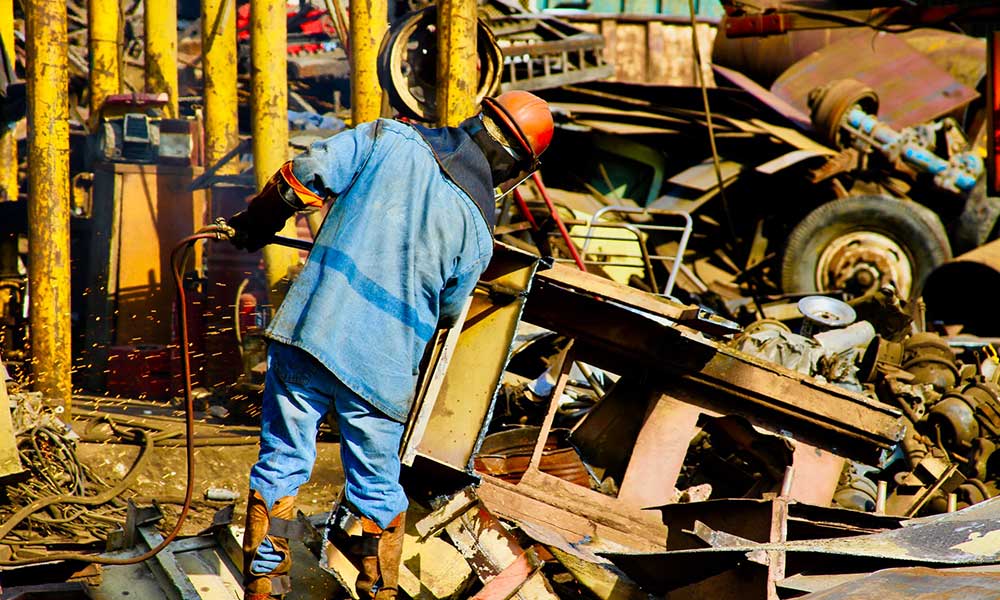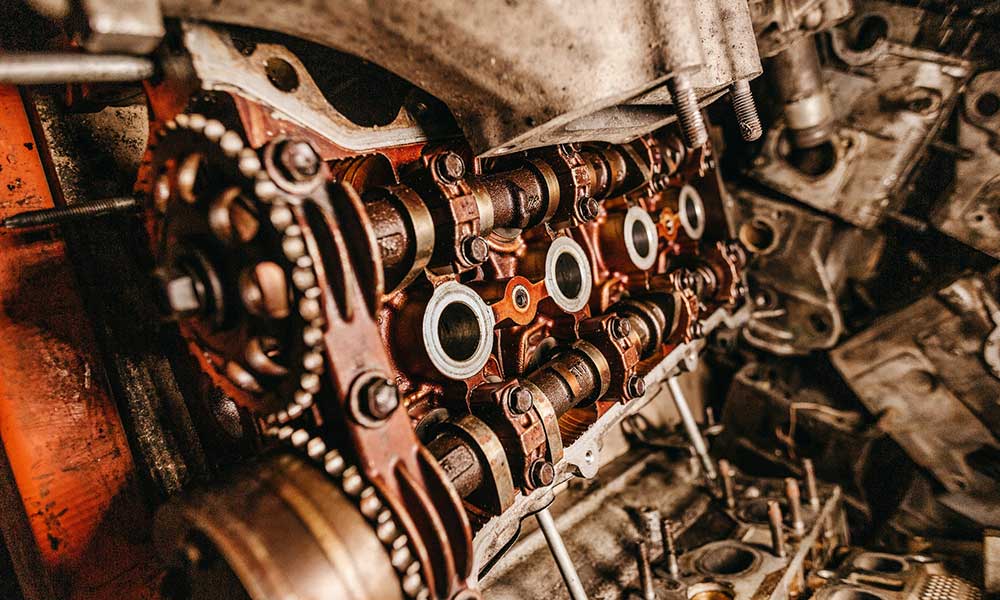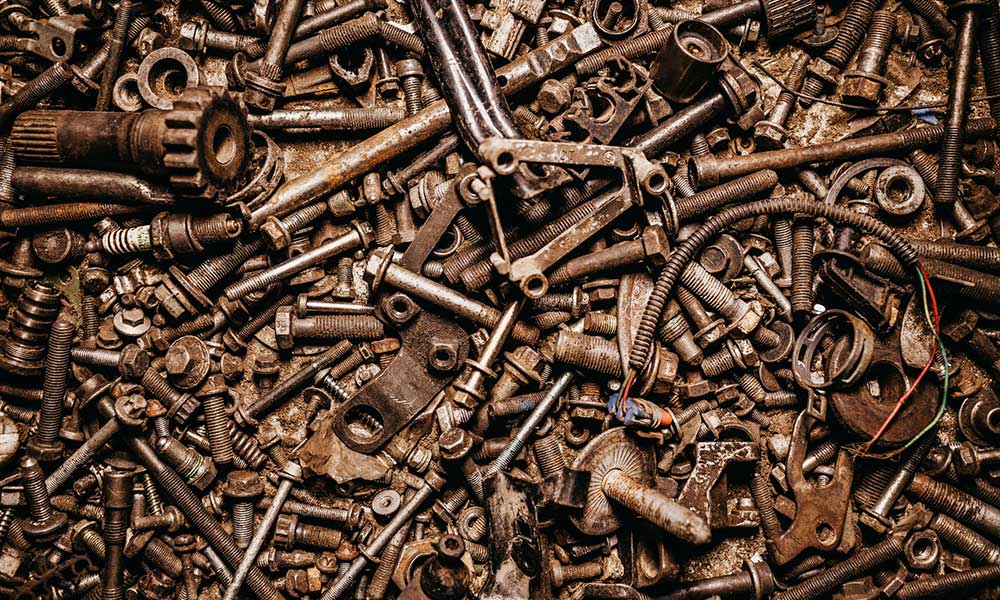Cars burn oil for different reasons, which can lead to your car making strange noises, emitting different odors, and overall malfunctioning. If your car is burning oil, this is an issue that shouldn’t be ignored. Continue reading to learn what to do if your car is burning and oil and issues that can cause it.
Why Does a Car Burn Oil and What Can I Do About It?
A car can burn oil for different reasons, such as the following:
- Worn-out valve seals
- Unstable motor oil
- Old or worn-out engine
- Using poor or the wrong quality of oil
- Damaged crankshaft seals
- Worn-out valve cover gasket
- Clogged crankcase ventilation
- Stuck piston rings
- High oil pressure
- Low oil viscosity
As cars age, some parts can become worn and lose their seal around the oil. Sometimes, oil can leak onto hot engine components, causing the oil to burn. When your car starts to burn oil, you can wash and clean the engine and take it for a test drive or replace the leaking part. Your other option is to take it to a professional.
Understanding Oil Consumption in Cars
Oil consumption in vehicles is a common issue that can lead to significant damage if the problem persists. As your vehicle ages, it’s more likely to consume engine oil due to normal wear and tear. Instances that could result in burning oil can include worn valve stems, piston rings, and guides and seals.
The amount of oil that a car consumes varies by the car manufacturer. This oil consumption can range from 1 liter per 1,500 km to 1 liter every 5,000 km. Upscale passenger cars often consume less than 0.05% of oil. Newer vehicles can consume between 1 quart and 1.5 quarts of oil per 1,000 miles driven.
Different factors, such as engine type, ambient temperature, and driving habits, can affect oil consumption. You should always fill up with engine oil prescribed by the vehicle manufacturer.
Common Causes of Excessive Oil Burning
Your car can excessively burn oil for different reasons. We’ll explore a few of them so you better understand why it happens.
Worn Piston Rings and Cylinders
Worn piston rings and cylinders can quickly cause your vehicle to experience different issues. Piston rings are essential because they help regulate oil pressure and the amount of oil the engine consumes. If worn piston rings and cylinders are the culprits, you may see a lot of exhaust smoke and notice poor acceleration. Excess oil consumption can also be an issue when worn piston rings leak oil into the combustion chamber.
Faulty Valve Seals
Indications of bad valve seals can include white or blue smoke from the exhaust and increased oil consumption. Poor acceleration and poor idling can also stem from faulty valve seals. These seals are necessary because they keep oil from leaking into the cylinders. If a seal fails, combustion could malfunction and not occur as it should.
Improper Oil Viscosity
Improper oil viscosity is the thickness or resistance to flow. Using oil that is too thin or thick can damage your engine. If the oil viscosity is wrong or a little off, drain and refill your car with a different oil with the correct viscosity.
Using the wrong oil viscosity can cause reduced fuel efficiency and engine overheating. Improper oil viscosity reduces engine protection and efficiency.
Identifying Signs of Oil Burning
The following could be an indication of oil burning:
- The smell of burning oil
- Oil puddles when you park for a while
- Blue smoke coming from your exhaust pipe
- Change in exhaust fumes
- Lubricated spark plugs
- Oil draining rapidly
- Check engine light comes on
- Misfiring and rough idling
Potential Consequences of Ignoring Oil Burning Issues
Ignoring any signs of an auto malfunction will likely end in disaster. Ignoring oil burning issues can result in the following:
- Damaged spark plugs
- Engine failure or excessive engine damage
- Overheating catalytic converter or failure
- Strange sounds coming from the engine
- Fire hazard
- Premature wear of rubber hoses and seals
- Potential injury to yourself and others
How to Address and Prevent Excessive Oil Burning
To address an oil burning with your car, you must first confirm there is an issue and that oil burning is the cause. Once you know oil burning is the culprit, you need to prevent this issue from occurring by doing the following:
- Carpooling, biking, or using public transportation (to reduce your reliance on oil)
- Switching to a renewable energy source (solar or wind power)
- Improving the efficiency of your vehicle
- Replace blown head gaskets
- Check the oil and refill if needed (especially if you have a high-performance car)
- Replace faulty spark plugs
- Fix worn ring pistons
- Make sure you’re using the right oil
- Repair the damaged oil pan (if applicable)
Regular Maintenance and Oil Changes
Changing the oil is part of regular maintenance on your car. Regularly changing your oil and properly maintaining your vehicle can improve engine performance, extend the life of your car’s engine, and improve fuel economy. Performing regular maintenance on your car reduces the risk of costly repairs and reduces engine wear and tear.
Using High-Quality Oil and Correct Viscosity
High-quality oil and the correct viscosity maintain your car’s engine health and improve longevity. Car oil has additives to help it resist too much thinning in the heat. However, car oil can be rated for another viscosity during colder months. The more resistant an oil is to thinning, the higher the second number—for example, 10W-40 vs. 10W-30.
Seeking Professional Help
When things malfunction with your car, sometimes you can make the repairs, and other times, it’s best to seek the help of a mechanic. While auto repairs can be expensive, it’s best to have them checked by a mechanic to avoid more expensive repairs later.
Legal Implications and Manufacturer Responsibility
In general, it is the manufacturer’s responsibility to ensure that their products are safe and meet or exceed the relevant safety standards. The manufacturer can be held liable if their cars are found to be unsafe or defective and result in damages or injuries from driving the vehicle.
Cars experience normal wear and tear over the years, especially if you live in an area where the roads have a lot of potholes and other unfavorable road conditions. If your car is burning oil, it’s best for you to check the car yourself or have it checked by a mechanic. Avoiding car repairs can result in more expensive repairs. Have your car checked at the first sign of trouble!

